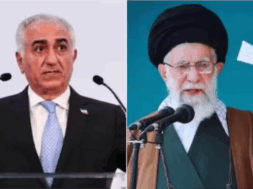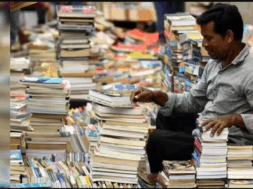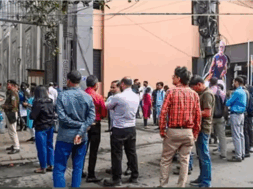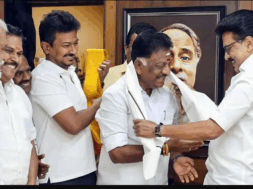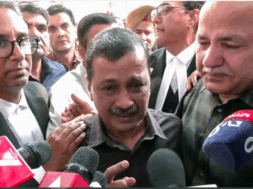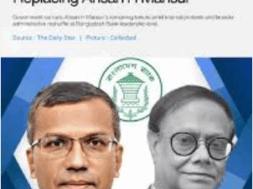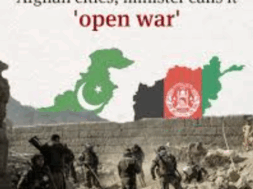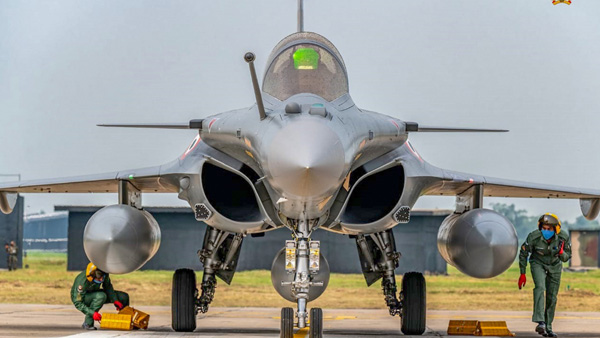
NEW DELHI, Apr 5: In yet another case of illegal bribing in defence deals, the 2016 deal for the sale of 36 Rafale jets to India by France is again shrouded by allegations of commission to “middleman.”
A French publication “Mediapart” alleged on Monday that the Rafale jets deal involved a 1.1 million Euro payment made by aviation major Dassault to a middleman in India.
In a report based on an investigation by the country’s anti-corruption agency, the French publication alleged that Dassault has claimed the money was used to pay for 50 replicas of Rafale jets but has been unable to provide any document or photograph as evidence that these were delivered.
The middleman is accused of money-laundering in India in another defence deal, it claimed.
As the Congress latched on the report demanding an “explanation” from the prime minister Narendra Modi, the BJP went in the defensive reminding the Congress that it had lost heavily after raising the Rafale deal issue in the 2019 Lok Sabha elections and should desist from making the “completely baseless” allegation of the French publication an issue yet again.
The “Mediapart” in its report said, “The company (Dassault) said the money was used to pay for the manufacture of 50 large replica models of Rafale jets, even though the inspectors were given no proof that these models were made,” it said.
The allegations were first uncovered by the French anti-corruption agency Agence Francaise Anticorruption (AFA) during their audit of Dassault, according to the report.
But the AFA “against all apparent logic” decided not to refer the case to prosecutors, it said.
“As they combed through the 2017 accounts, the AFA inspectors raised an eyebrow when they came across an item of expenditure costing 508,925 euros and entered under the heading ‘gifts to clients’,” the AFA report said.
“The sum was indeed huge for a gift. Though French law does not set out precise limits, legal precedents suggest that giving a watch or an expensive meal costing several hundred Euros can be enough to constitute corruption.”
The report said to justify this “larger than usual gift” Dassault supplied the AFA with a proforma invoice dated March 30, 2017, which was supplied by an Indian company called Defsys Solutions. “This invoice, which related to 50 per cent of the total order, was for the manufacture of 50 models of the Rafale C, with a price per unit of €20,357,” the AFA report said.”
Defsys Solutions is run by Sushen Gupta, who is being investigated by the CBI and Enforcement Directorate in the AgustaWestland case involving kickbacks paid in India in a deal for VVIP choppers. Defsys is one of the subcontractors of Dassault in India. Sushen Gupta was earlier arrested and granted bail in the chopper deal case.
The AFA inspectors asked Dassault for an explanation. “Why had Dassault ordered an Indian company to make models of its own aircraft at 20,000 Euros a plane? Why was this expenditure entered in the accounts as ‘a gift to client’? And were these models, each one of which was supposed to be the size of a small car, really ever made?”
According to Mediapart, “Dassault was unable to provide the AFA with a single document showing that these models existed and were delivered, and not even a photograph. The inspectors this suspected that this was a bogus purchase designed to hide hidden financial transactions”.
The Congress demanded Prime Minister Narendra Modi’s statement on the reveal.
“An investigation conducted by French Anti-Corruption Agency – AFA has now revealed that after signing of the deal in 2016, Dassault paid 1.1 Million Euro to a middleman i.e. Defsys Solutions. This amount was shown as ‘Expenditure by Dassault’ as ‘Gifts to Clients’,” Congress spokesperson Randeep Surjewala said.
“Does it now not require a full and independent investigation into India’s biggest defence deal to find out as to how much bribery and commission in reality, if any, was paid and to whom in the Indian government?”
At a press conference, Surjewala claimed that the report by the French news portal, Mediapart, has vindicated former party chief Rahul Gandhi’s allegations of corruption in the deal.
In the run up to the 2019 Lok Sabha elections, Gandhi had alleged corruption in the Rafale fighter aircraft his main poll plank.
“Does it now not require a full and independent investigation into India’s biggest defence deal to find out how much bribery and commission in reality, if any, was paid and to whom in the Indian government? Will Prime Minister Narendra Modi answer to the nation now?” asked Surjewala.
“How can middleman and payment of commission be permitted in a “government-to-government Defence Contract” or in any defence procurement in violation of the mandatory Defence Procurement Procedure [DPP],” asked Surjewala.
He said the DPP and the “Integrity Clause” in the government’s policy regarding defence purchases explicitly bars commission for middleman or any such payments that can be construed as bribe.
Dismissing the allegation as “completely baseless,” the union minister Ravi Shankar Prasad said, “Why is the Congress again talking about the Rafale issue? The Supreme Court and the CAG have found nothing wrong in the deal. Congress made it a big issue ahead of the Lok Sabha polls in 2019 but lost badly. A French journal has published the issue. We have to take into consideration the issue of corporate rivalry in France. The report has named (middleman) Sushen Gupta who was arrested in the AgustaWestland scam. Salman Khurshid had publicly said he knew Gupta.”
Immediately getting into the “nationalism” mood, Prasad said, “If we had the Rafale fleet, it would have been of great help during the Balakot strike. Congress had asked for proof after Uri and Balakot strikes. They shouldn’t try to destabilise the willpower of the defence forces of the nation.”
Though it was a very minor party then, the BJP had taken up the alleged “commission” in Bofors gun deal issue in a large scale against the then Rajiv Gandhi government without ever bothering that controversy over the defence deal issue could “destabilize the will power of the defence forces of the nation.”
(Manas Dasgupta)
